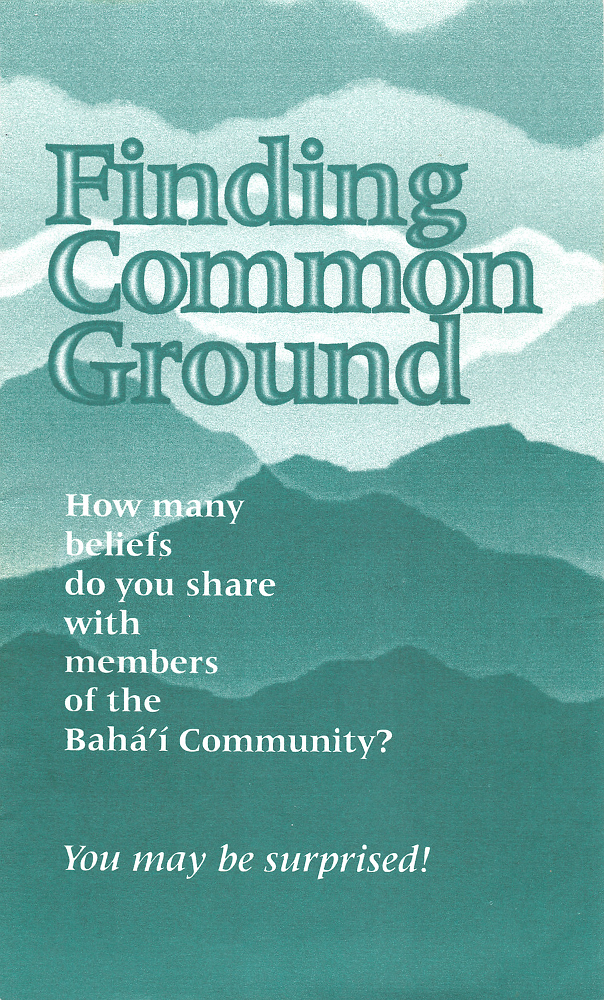The intersection of spirituality and secularism has long captivated thinkers, scholars, and laypersons alike. In a contemporary landscape characterized by rampant individualism, the emergence of Atheist and Agnostic Bahá’ís poses a playful yet critical question: Can one espouse Bahá’í principles while simultaneously identifying with non-theistic worldviews? Within this framework, the core teachings of the Bahá’í Faith provide fertile ground for dialogue, reconciliation, and mutual understanding.
The Bahá’í Faith, founded in the 19th century by Bahá’u’lláh, emphasizes the oneness of humanity and the universality of religious truth. It posits that various religions share a common origin and ultimately lead to the same divine source. This unique perspective fosters inclusivity, inviting individuals from diverse backgrounds—including those who identify as Atheist or Agnostic—to explore Bahá’í teachings without the necessity of conventional belief in God. Therefore, Atheist Agnostic Bahá’ís embody a fascinating conundrum in the quest for spiritual truth.
At the heart of Bahá’í teachings lies the concept of individual investigation of truth. This principle serves as a cornerstone for all followers, encouraging them to explore and assess their beliefs autonomously. For Atheist and Agnostic Bahá’ís, this inquiry can manifest in multiple dimensions, liberating them from dogma while enabling them to engage with the ethical and moral teachings intrinsic to the faith. Such flexibility beckons the question: How can these teachings be harmonized with a worldview that eschews theistic belief?
One striking aspect of Bahá’í doctrine is its commitment to social justice and the betterment of humanity through collective action. Atheist Agnostic Bahá’ís find resonance in such efforts, viewing them not solely through the lens of divine edict but rather as an expression of humanistic values. The Bahá’í call to service—manifested through community engagement, social initiatives, and global collaboration—stands as a testament to shared aspirations of a just society. In this endeavor, the focus shifts from a divine reward to a commitment to fostering communal welfare, allowing non-theistic followers to align their principles with Bahá’í ethics.
Moreover, the teachings on unity and diversity are particularly relevant to this discussion. The Bahá’í Faith venerates various cultural traditions, philosophies, and spiritual practices, thereby legitimizing pluralism as a potent societal asset. In a world often fraught with division, the commendation of diversity serves as a unifying beacon. Here, Atheist Agnostic Bahá’ís play a pivotal role in advancing this narrative of inclusivity, human agency, and collaboration, uplifting ethical discussions surrounding coexistence, respect, and compassion.
It is also crucial to address the cognitive dissonance that may arise within Atheist and Agnostic Bahá’ís. While they find profound value in the ethical teachings of Bahá’u’lláh, reconciling these tenets with a secular worldview necessitates a nuanced comprehension of spirituality that transcends traditional theism. Essential to this is the Bahá’í emphasis on personal and collective well-being, presenting existential questions of purpose and meaning. How does one derive a sense of purpose when divine intervention is off the table? Challenging though this may be, it allows adherents to forge a meaningful existence rooted in shared humanity rather than transcendental promises.
Through various avenues—dialogue, art, and literature—Atheist Agnostic Bahá’ís also contribute to an evolving understanding of the faith itself. Articulating their perspectives through creative expressions can illuminate paths for deeper inquiries among traditional believers and non-believers alike. By embracing artistic endeavors, such as poetry and storytelling, individuals can impart their unique interpretations of Bahá’í concepts, fostering community and sparking critical discourse.
In addition, collaborative engagement with scientific communities serves to formalize the relationship between Bahá’í teachings and empirical inquiry. Many Atheist and Agnostic Bahá’ís advocate for the integration of science and religion, asserting that neither realm is incompatible with human understanding. By utilizing a scientific lens, they often unpack concepts such as the nature of the universe, evolution, and morality, all while integrating Bahá’í principles that promote dialogue and understanding. This approach openly welcomes skepticism while advocating for a framework enriched by both spiritual and empirical insights.
Ultimately, the journey of Atheist and Agnostic Bahá’ís invites both a challenge and an opportunity—a chance to redefine the parameters of faith in the modern world. By fostering conversations that traverse the boundary between belief and non-belief, they facilitate a broader dialogue on the essence of human existence, morality, and the role of personal agency. In this light, the Bahá’í teachings offer a versatile platform for exploration, bridging seemingly disparate worldviews through shared values of justice, compassion, and the genuine pursuit of truth.
As the global community continues to navigate societal transformations, the challenge lies in sustaining this dialogue. Are we prepared to embrace interpretations of spirituality that defy traditional demarcations? The journey toward finding common ground between belief and skepticism not only enriches the Bahá’í Faith but also affirms the profound interconnectedness of all human beings, regardless of their religious or philosophical affiliations. Such a pursuit not only realizes the ideals of unity and diversity espoused by Bahá’u’lláh, but also illuminates a path toward a more inclusive, compassionate world.
